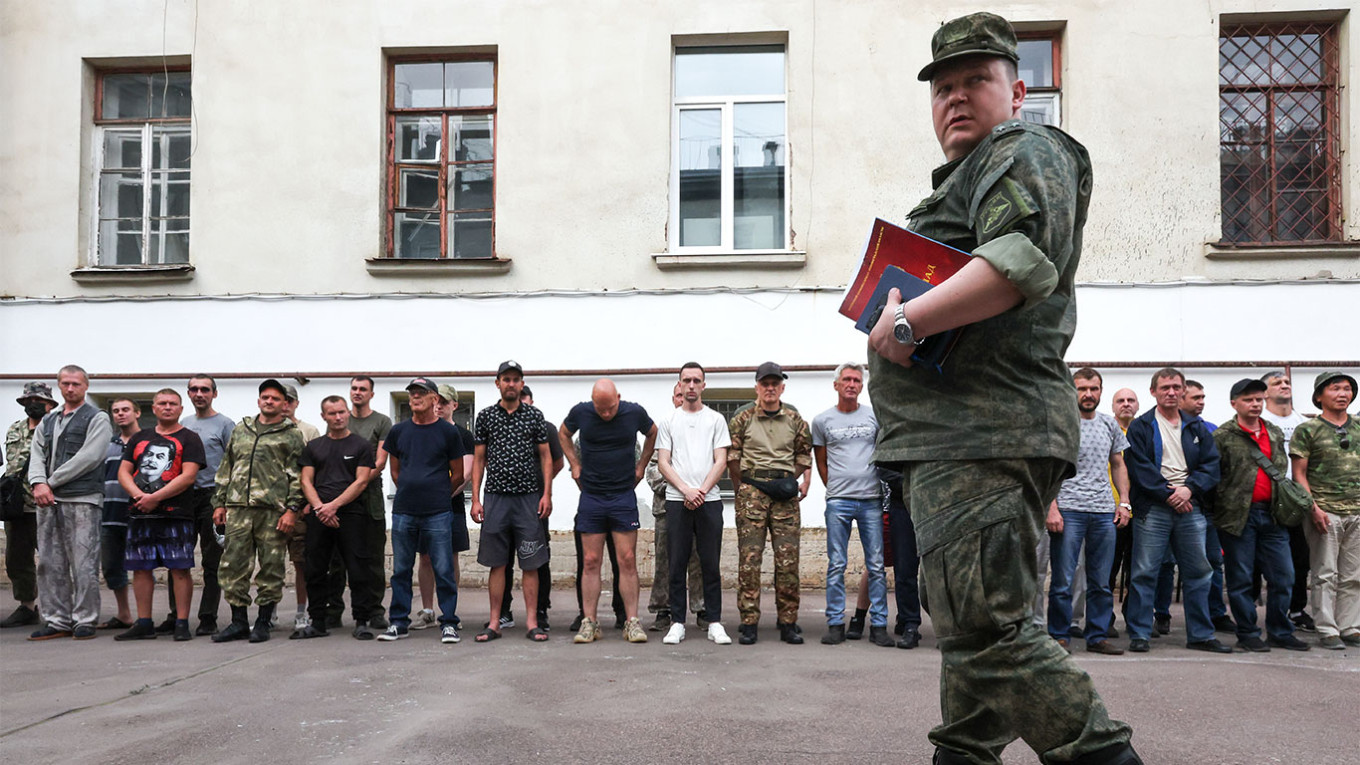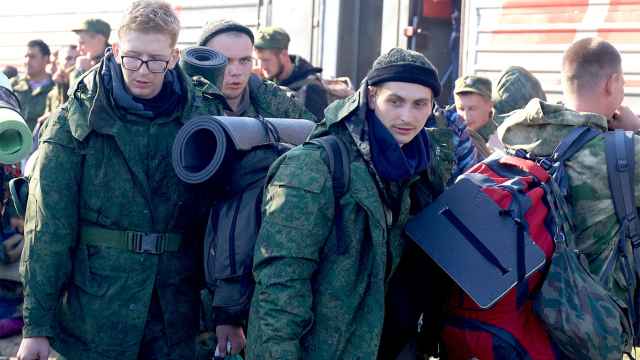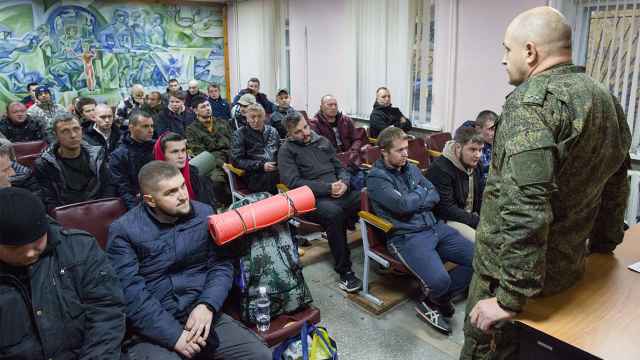Russia is likely to keep banking on various coercion tactics to bolster its military manpower in Ukraine, experts say, a strategy that has proven effective at ensuring a continuous supply of fresh recruits to the front lines for the past two years.
The Russian military has been pushing to capture more Ukrainian territory this month as Kyiv has waited for the latest U.S. military aid package and other promised Western support to materialize on the battlefield, fueling rumors among Russians that Moscow may be planning a new wave of mobilization.
Rights activists told The Moscow Times that a formal mobilization announcement remains unlikely after its “partial” mobilization of reservists in fall 2022 sparked protests and a mass exodus of draft-eligible men.
In fact, though the Defense Ministry said it had met its stated quota in the fall 2022 mobilization, the mobilization process itself “has never ended,” said lawyer Alexei Tabalov, the head of conscripts’ rights NGO Shkola Prizyvnika.
“If we define mobilization strictly according to the law, then it means conscription of citizens listed in reserve for military service. But in a wider sense, mobilization is…simply the recruitment [of soldiers] for the front lines,” Tabalov explained.
When the Kremlin first announced the September 2022 “partial” mobilization, “[officials] didn’t think about the consequences and went head first,” Tabalov told The Moscow Times.
“Now, after facing the public backlash, the resistance and the resentment, [the authorities] are acting in a more skillful and calculated way, sending to the front line those who want it and those who can’t refuse.”
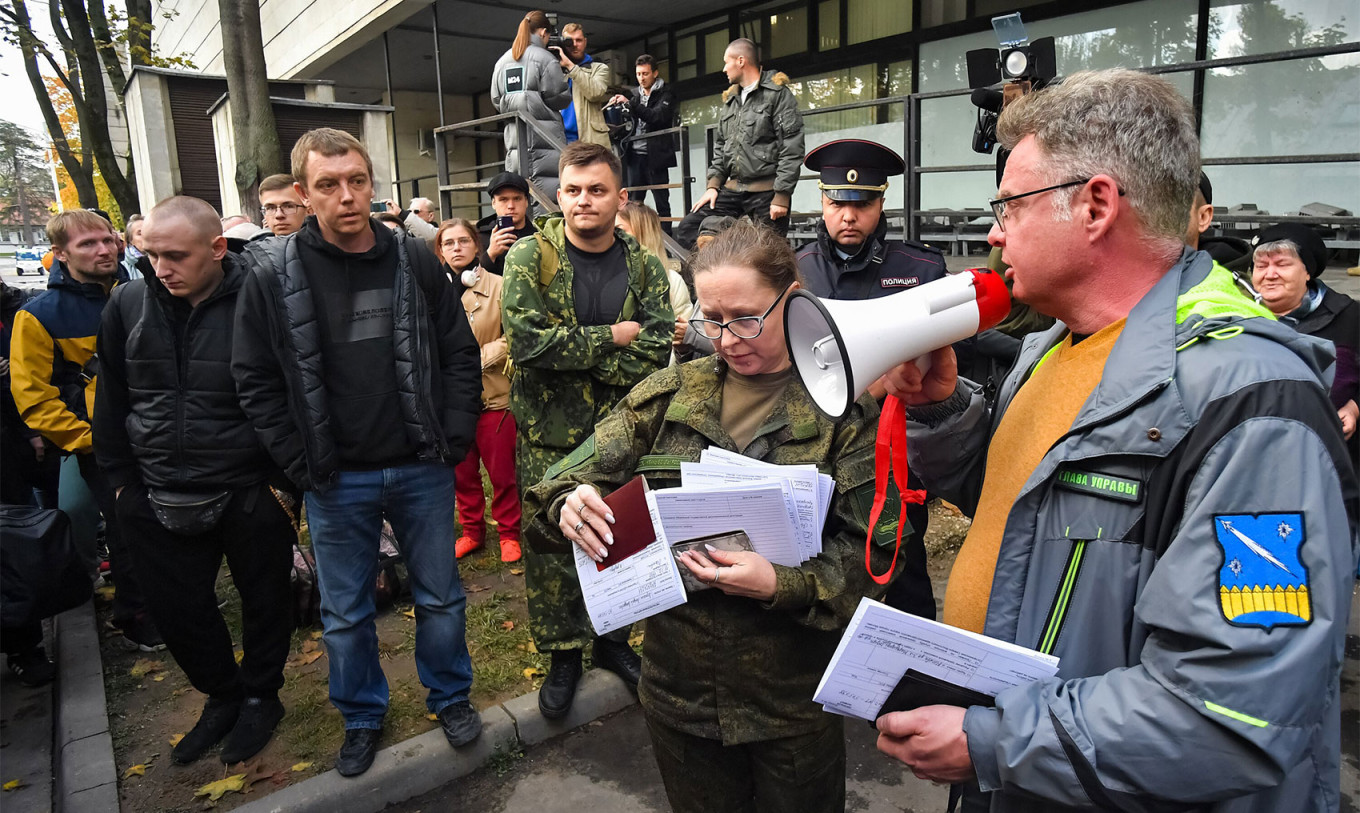
In the first few months of the “partial” mobilization, the Defense Ministry largely banked on recruiting convicts — who were promised pardons and high salaries in exchange for their service — and tricking former migrant workers who recently acquired Russian citizenship into signing military contracts.
Since then, the Defense Ministry has set its sights on men undergoing their compulsory military training even though Russian law prohibits deploying these conscripts to combat zones.
“They are being recruited after half a year of service, when they already have some basic skills,” said Tabalov.
Many of these conscripts are lured to enlist by high salaries and social benefits. Others are subjected to physical violence and intimidation.
Last year, Andrei Lazhiev, a native of the republic of Karelia, sustained a fatal head injury while undergoing compulsory military service in annexed Crimea. Lazhiev’s family maintains that their son was severely beaten because he refused to sign a military contract.
“The tactics of luring [men] into signing a contract change constantly,” said Ivan Chuvilyaev of Idite Lesom (Get Lost), a civic initiative helping Russian conscientious objectors. “I would compare it with [repeatedly] throwing a net to check who can get caught in it.”
Russian military volunteers are promised a monthly salary upwards of 200,000 rubles ($2,100) upon enlisting, at least three times higher than the national average.
For many men — particularly those from economically disadvantaged regions — these sums of money and social benefit packages are a good enough reason to go to war.
“For now, there are people in Russia who are ready to go [to war] for money. Their number is decreasing, but they are there,” said lawyer Tabalov. “While they exist, there is no need for widespread mobilization.”
But military volunteers stationed on the front lines and those who return home due to combat‐related injury frequently complain that they have not received the monetary rewards that were promised.

Some military volunteers and mobilized men from the Russian Far East said they received only about 5% of their promised payments this month, the Ostorozhno Novosti news channel on Telegram reported Tuesday.
Men who hesitate to enlist for fear of dying on the frontlines are being tricked with promises of keeping their civilian professions while working for the Defense Ministry, human rights activists say.
“The typical story [goes]: There is a man working as a restaurant cook…and an acquaintance tells him that he can go and serve as a cook in the army instead, where he will receive a good salary…and all the benefits that soldiers in combat get,” Chuvilyaev explained.
“It shouldn’t be assumed that only people of working-class jobs like a cook or a tractor driver were lured in. We also had a case of a journalist who was promised work in the Defense Ministry press service [but was deployed to fight on the frontlines in Ukraine],” Chuvilyaev added.
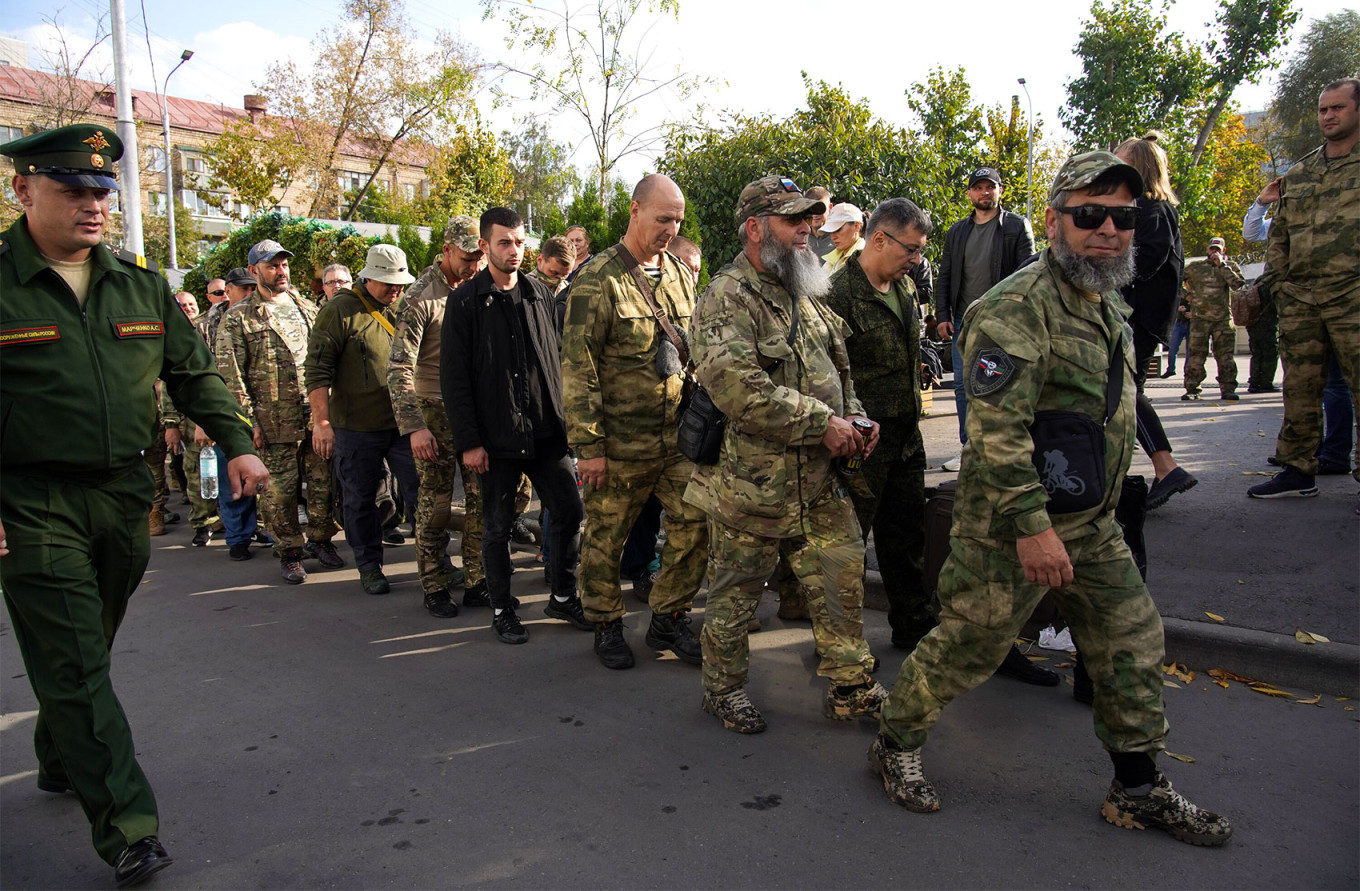
In the country's regions beyond Moscow and St. Petersburg, regional officials target men from disadvantaged backgrounds, debtors and those with a history of misdemeanor offenses by threatening them with lengthy jail terms on fabricated charges — all in an attempt to fulfill Kremlin-imposed regional quotas on recruitment of military volunteers.
While the war has faded into the background of many Russians’ lives, men often join the army on an impulse fueled by exposure to propaganda — which brands military service as “a real man’s job” — or merely a wish to escape personal problems.
“There are more and more people who decide to sign the contract on a momentary impulse and then change their mind. A man might have a fight with his wife and go [sign a contract] to spite her or get drunk and sign the contract under the influence,” said Tabalov of Shkola Prizyvnika.
“These stories might sound absurd, but there are many of them.”
A Message from The Moscow Times:
Dear readers,
We are facing unprecedented challenges. Russia's Prosecutor General's Office has designated The Moscow Times as an "undesirable" organization, criminalizing our work and putting our staff at risk of prosecution. This follows our earlier unjust labeling as a "foreign agent."
These actions are direct attempts to silence independent journalism in Russia. The authorities claim our work "discredits the decisions of the Russian leadership." We see things differently: we strive to provide accurate, unbiased reporting on Russia.
We, the journalists of The Moscow Times, refuse to be silenced. But to continue our work, we need your help.
Your support, no matter how small, makes a world of difference. If you can, please support us monthly starting from just $2. It's quick to set up, and every contribution makes a significant impact.
By supporting The Moscow Times, you're defending open, independent journalism in the face of repression. Thank you for standing with us.
Remind me later.



